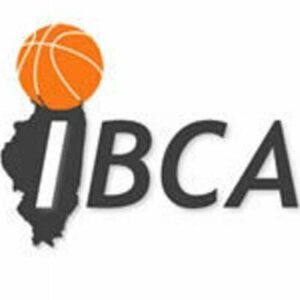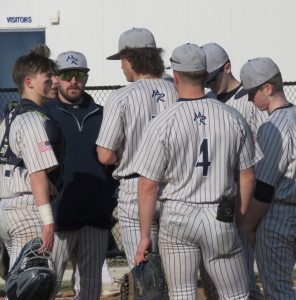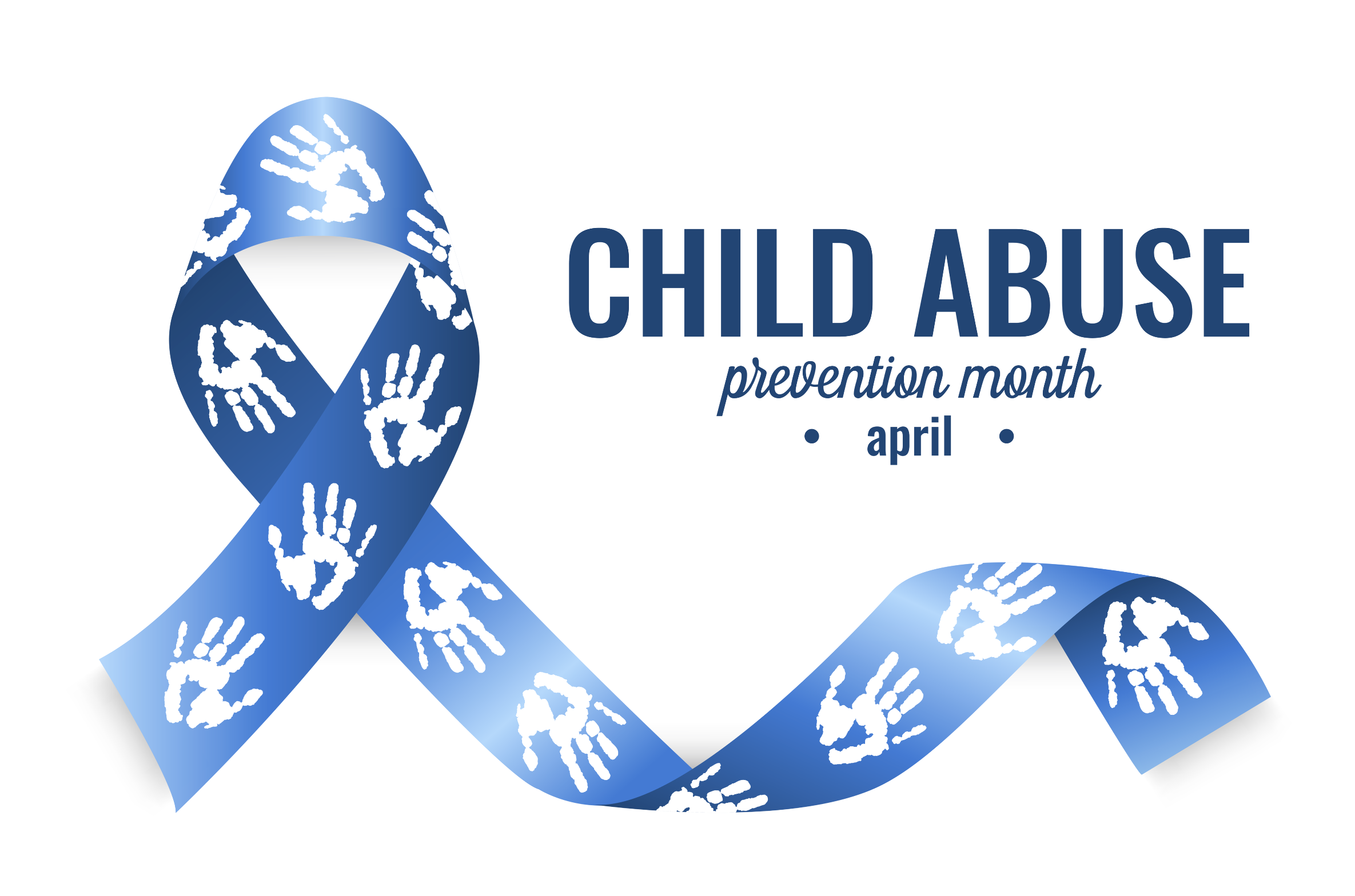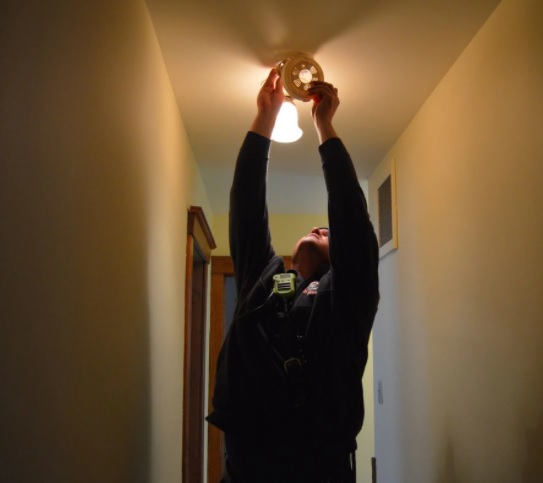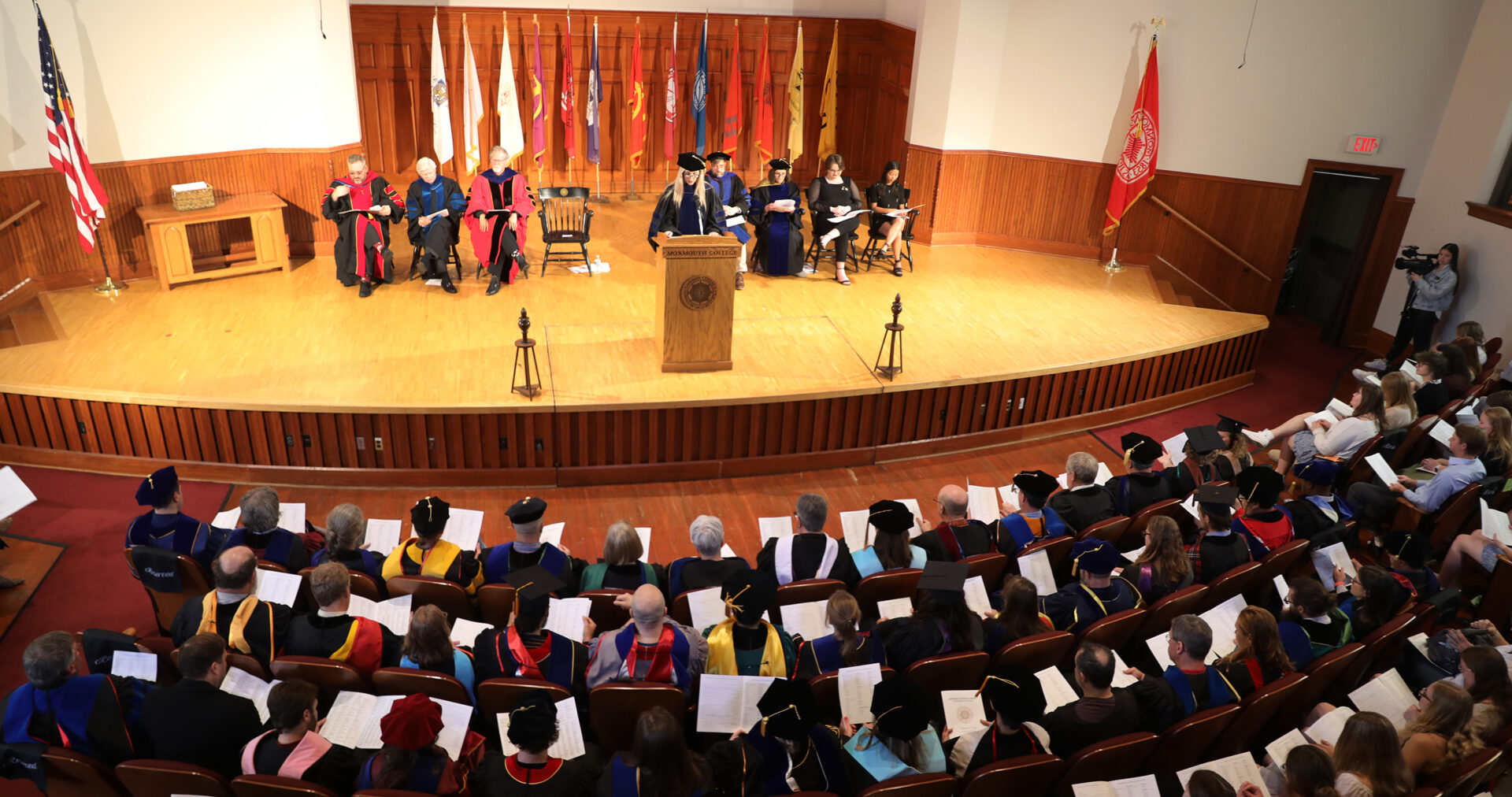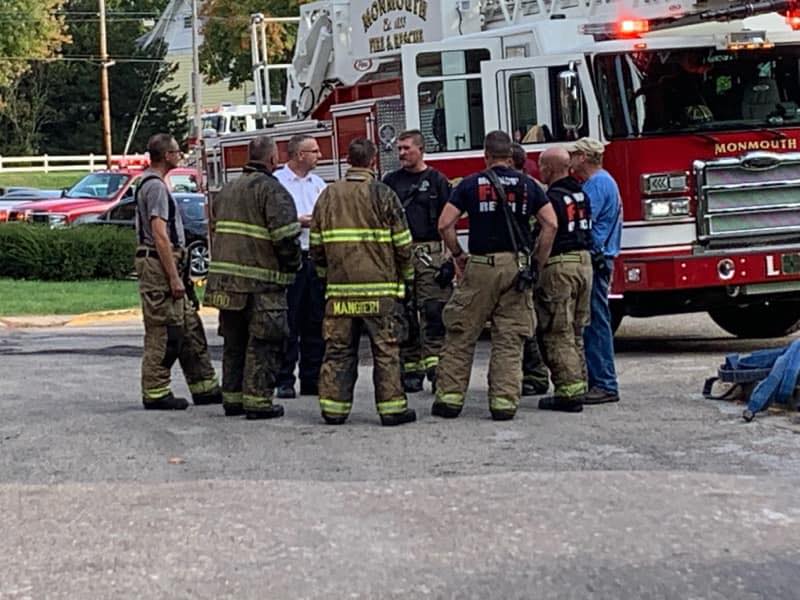News from Monmouth College
For more information contact: Duane Bonifer 309-457-2321, dbonifer@monmouthcollege.edu
MONMOUTH, IL (11/09/2018) The 11th hour of the 11th day of the 11th month will soon be upon us.
One hundred years ago in 1918, that memorable time that marked the (unofficial) end of World War I was the inspiration for what we now call Veterans Day.
No formal commemorative Armistice Day ceremony will be held on campus, but Monmouth College has been focusing on World War I throughout the fall semester. Several history classes are studying the topic, and a rotating display in the College’s Hewes Library is devoted to it.
Assembled by Technical Services Librarian Lynn Daw, the exhibit currently features Monmouth Daily Review newspapers from Nov. 11, 1918 (which cost two cents at the time), including a special “5 O’Clock Edition” with the giant headline “The Armistice Signed By Huns.”
In recent weeks, the exhibit has included items collected by Monmouth Class of 1917 alumna Edith Glass Barnes, as well as documents from the College’s Archives. It recently featured a Monmouth College Oracle article about her Monmouth classmate, Paul Ferguson, who died during the Spanish flu pandemic of 1918. Worldwide, 50 to 100 million people (3 to 5 percent of the world’s population) died from influenza, making it one of the deadliest natural disasters in human history.
History professor Christine Myers, who has taught several WWI-related courses during her time on Monmouth’s faculty, will tackle the influenza pandemic later this month in her “World War I Hospitals” class. She will focus specifically on Armistice Day during her the Nov. 12 meeting of the class.
In December, Myers and her students will Skype with historian Ida Milne, who teaches at Carlow College in Ireland and Queen’s University in Northern Ireland. Milne is the author of Stacking the Coffins: Influenza, War and Revolution in Ireland, 1918-19.
Another history class, “The American Home Front During World War I,” is being taught by Mary Osborne, the museum specialist at Stewart House, the historic founding home of the national women’s fraternity Kappa Kappa Gamma, which was founded at Monmouth College in 1870.
“The war didn’t officially end until 1919 and the Treaty of Versailles, even though the Senate never ratified the treaty,” said Osborne. “But we celebrate Armistice Day because hostilities ended on that day. It’s a lot easier to remember ‘The 11th hour of the 11th day of the 11th month.'”
In 1954, Congress officially changed the name of the day to Veterans Day. Three decades later, President Ronald Reagan, whose “home front” at the end of WWI was in Monmouth, spoke about Armistice Day during a Presidential Citizens Medal ceremony.
“I may be one of the few people in this room who remembers when Veterans Day was called Armistice Day,” Reagan said in those 1982 remarks. “And I might add, I not only remember when it was called that day, I guess we may be the only ones that were on the streets in the wild celebration of the first and actual Armistice Day when it was signed.”
Osborne grew up in Indianapolis, where passion for the military runs especially deep. She said the city threw an impressive celebration in reaction to the events of Nov. 11, 1918.
“One of the largest war memorials is in Indianapolis,” she said. “Indianapolis is second to Washington, D.C., in the number of war memorials. They’re just part of the landscape. … The welcome home parade in Indianapolis was spectacular. They recreated the Arc de Triomphe in Paris, and the soldiers all walked through that. The event foreshadowed the creation of the American Legion,” which today has its headquarters in Indianapolis.
With that American Legion tie-in as an inspiration, Osborne’s dissertation was titled “An Everlasting Service: The American and Canadian Legions Remember the First World War, 1919-1941.”
“Prior to my study, most historians looked at organizations like that from the top down,” she said. “I was interested in gathering recollections from everyday people.”
Her work included accounts of raising funds for injured veterans and buying Christmas gifts for war orphans.
“Some of my favorite stories were soldiers on the U.S.-Canadian border coming together each year to meet and celebrate the anniversary of the armistice,” she said. “It was nothing particularly elaborate – just getting together and reestablishing those bonds of camaraderie.”
The war had a feel-good ending in the United States, but in her class, Osborne’s students have also been learning about the divisiveness that marked the time.
“It’s very complex for people to realize different groups’ responses to the war,” she said. “During the years of neutrality, America was definitely not all-in,” as it would be a quarter-century later during World War II. “Particularly here in the Midwest, there was a lot of opposition to the war.”
One attempt to change that, Osborne said, was President Woodrow Wilson starting the Committee on Public Information “for people to get behind the war effort.” That agency has been referred to as “the first western propaganda office.”
Osborne has had her class study several primary documents, including Monmouth College yearbooks from the era. They’ve also read about the murder of German-born Robert Prager in Collinsville, Ill., the only foreign national to be lynched during WWI, and race riots in nearby East St. Louis.
Other century-old items studied by the class include Randolph Bourne’s essay “The War and the Intellectuals” and audio recordings of Samuel Gompers, president of the American Federation of Labor.
View Online: http://monmouthcollege.meritpages.com/news/Before-Veterans-Day-the-U-S-celebrated-the-now-century-old-Armistice-Day/6378
***Report Courtesy of Monmouth College***






